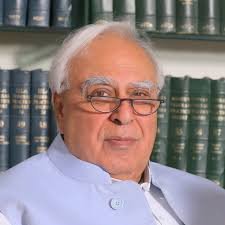The Bombay High Court’s Aurangabad bench recently upheld the prison authorities’ decision to reject a convict’s request for a transfer to an open prison.
The division bench, consisting of Justices Mangesh Patil and Abhay Waghwase, denied Sardar Khan’s petition, which challenged the Inspector General of Prisons’ decision. In an order issued on February 4, the authority determined that Khan, who is over 65 years old and a convicted offender in the blast case, is not eligible for a transfer to an open prison, as per the Maharashtra Open Prison Rules of 1971.
The court observed that the rules give the Inspector General discretionary powers that must be exercised with care, which the panel led by Justice Mangesh Patil found that the Inspector General had appropriately exercised.
“Bearing in mind such principles if we examine, the impugned order, it inter alia mentions that the petitioner is a convict of Mumbai Bomb Blast 1993 case as one of the reasons. Though it has not been specifically categorized in any other clauses of Rule 4, this ground, in our considered view, can certainly fit in the residuary 4(ii)(n). We see no reason to observe that this ground purportedly resorted to by the Inspector General of Prisons is arbitrary or capricious,” the Court observed.
The bench clarified that inmates convicted under special statutes like the TADA would fall under sub-rule (ii) of Rule 4. The Maharashtra Open Prison Rules of 1971 specify which categories of inmates are eligible or ineligible for housing in open prisons.
Sub-rule (ii) of Rule 4 states that prisoners who are habitual offenders, have received three or more major punishments, are fugitives or escape risks, are hired or professional murderers, or are deemed unfit by the Inspector General of Prisons cannot be transferred to an open prison.
“Considering the category of prisoners mentioned in sub Rule (ii), the convicts for grave offences and habitual offenders are excluded from the benefit of selection for confinement in an open prison. The convicts under TADA, in our opinion can easily fit in such category of prisoners who have been excluded from such benefit. If the Inspector General of Prisons has found the petitioner unfit being a convict under Mumbai Bomb Blast 1993 case, we find that he has used the discretion appropriately,” the bench observed.
The panel also observed that the applicant’s statements were contradictory. It was noted that when he requested emergency parole and furlough during the COVID pandemic in accordance with Supreme Court directives, he cited his age and arthritis as reasons.
The Court stated that he cannot claim he is fit and should be transferred to an open prison where he must perform manual labour.
“Meaning thereby that he is changing his stance according to need. If in October 2021 he was claiming that he was more than 65 years of age and was suffering from arthritis and other illnesses, he cannot be heard to say that subsequently he became fit and he is entitled to the concession of being shifted to an open prison, where manual labour has to be put in. Therefore, we find no illegality even in this ground assigned by the Inspector General of Prisons for rejecting the petitioner’s claim,” the bench asserted.
With these remarks, the court dismissed the appeal.



